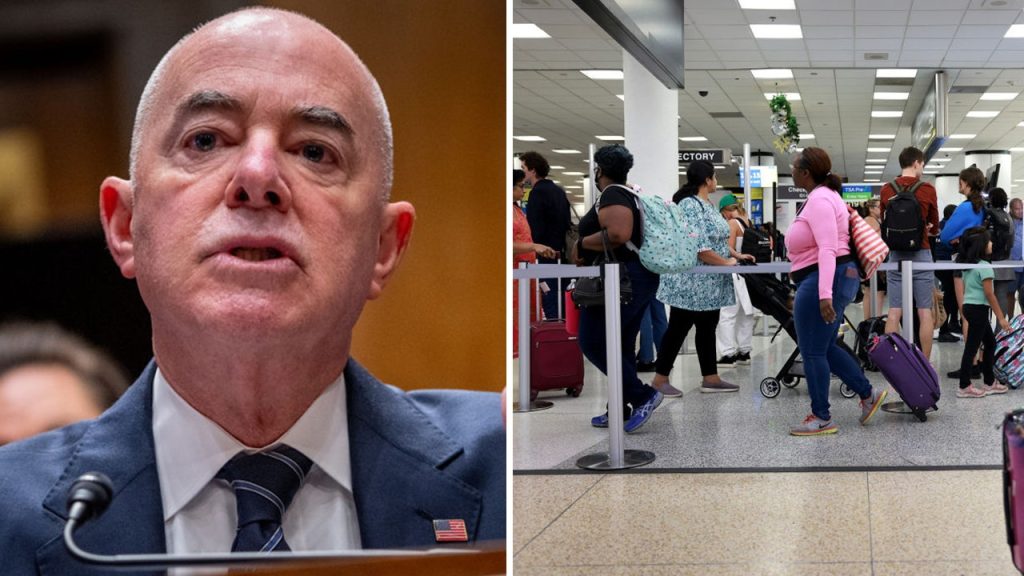House Homeland Security Committee Chairman Mark Green is leading an investigation into the Biden administration’s decision to freeze a program that allows migrants to fly or travel directly into the U.S. Following revelations of fraud within the program, Green has written to Secretary Alejandro Mayorkas demanding documents and communications regarding the pause of the parole processes for Cubans, Haitians, Nicaraguans, and Venezuelans (CHNV) after finding a briefing he received to be “wholly unsatisfactory.” The Biden administration had paused the issuing of advance travel authorizations in July for the program, which allows nationals from these countries to enter the U.S. legally under parole since early 2023.
The Department of Homeland Security (DHS) confirmed that they had temporarily paused the issuance of advanced travel authorizations for new beneficiaries out of caution and were conducting a review of supporter applications, taking the abuse of processes seriously. This decision came after an internal report revealed significant fraud indicators, including multiple forms filled out by serial sponsors and the use of deceased individuals’ numbers and storage unit addresses. The focus was on issues with supporter filings rather than those from the beneficiaries of the program.
House Republicans expressed dissatisfaction with a briefing they received in which officials failed to address basic questions regarding the suspension of parole processing, fraud indicators, sponsorship threshold numbers, tracking upcoming parole expirations, and backlog of travel authorizations awaiting approval. They also found that officers were instructed to allow supporters to sponsor up to 10 separate applications before undergoing a review for potential fraud, reducing the level of scrutiny and potentially enabling widespread abuse of the CHNV parole program.
The lawmakers are requesting an unredacted copy of the internal report, all internal communications about fraud within the program, documents on the suspension of the program, information about the dates when authorizations were suspended, current backlogs, and fraud safeguards for other parole programs. The program, initially announced for Venezuelans in October 2022 and expanded to additional nationals in January 2023, allows migrants to receive work permits and two years of authorization after passing biometric and biographical checks and having a sponsor. Republicans have criticized the program as an abuse of parole authority.
The program does not facilitate flights, and migrants are responsible for their own travel arrangements. Republicans have called for the program to be shut down permanently, citing concerns about potential abuse of parole authority. DHS reiterated that CHNV beneficiaries are thoroughly screened and vetted before arriving in the U.S., with screening and vetting of beneficiaries and U.S.-based supporters conducted separately. Despite the pause in advance travel authorizations, DHS maintains that there are no identified issues of concern related to the screening and vetting of beneficiaries. The agency will continue to respond to congressional oversight regarding the program.


